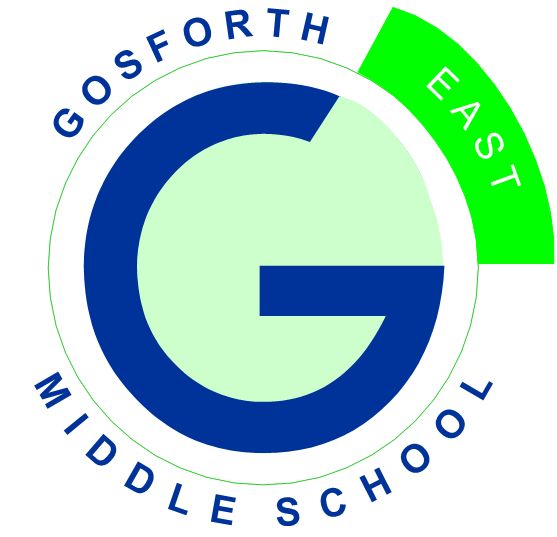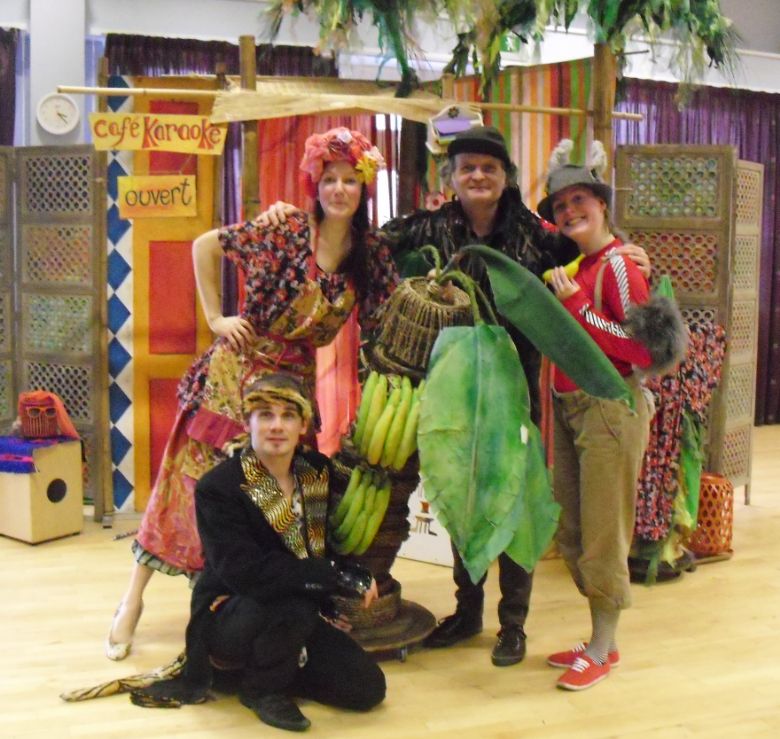Languages
Théâtre sans Frontières performing at GEMS
Curriculum Intent
At GEMS, we value language learning and aim to help develop well-rounded students who are outward looking.
We aim to enable students to communicate in real world situations, whilst helping to prepare them to move to high school (and beyond) as resilient, resourceful linguists.
We use a specific pedagogical approach designed to ‘flood’ students with the target language. Students learn ‘chunks’ of language through a range of activities designed to expose them to the same language repeatedly until it is internalised. The cycle of activities focuses on listening and then reading before children move to production. The core language for each unit is taught through a sentence builder (or substitution table). See an example sentence builder below from Year 6, unit 2. The main grammatical structures are learned implicitly throughout the early stages of the learning cycle and a there is a key grammatical focus for each unit in which explicit teaching and practice takes place. Children are assessed regularly in low stakes tests. The language from previous units is repeatedly interleaved with new language to build the language pupils can remember and use. Our curriculum covers all areas of the National Curriculum at KS2 and KS3.
In MFL at GEMS pupils will:
- Learners will understand and respond to spoken and written language from a variety of authentic sources
- Speak with increasing confidence, fluency and spontaneity, continually improving pronunciation and intonation
- Write, with increasing accuracy, for different purposes and audiences
- Discover and appreciate a range of writing in the language studied, including songs, poems and media
- Broaden their vocabulary and know how to use a bilingual dictionary to support themselves
- Read carefully, developing a range of strategies to decode unfamiliar language
- Spell with increasing accuracy
In Key Stage 2 & 3, children study Spanish, building on the knowledge and skills they acquire in first school. Teaching takes place in mixed ability form class groups. Supported by their widening know-how and increased curriculum time, learning is often accelerated. Currently, Key Stage 3 pupils are grouped into 4 classes.
Our curriculum reflects the 4Rs of valued learning attributes: we help develop resourceful, resilient learners, who are able to reflect upon their learning and develop constructive relationships. The skills, knowledge and understanding gained through learning a language contribute to the development of children’s oracy and literacy. Through learning a language, children investigate their own culture whilst learning about others.
How students are supported in MFL
Teachers are responsible for the progress of ALL students in their class and high-quality teaching is carefully planned to include supporting students who may have SEND. All students are challenged to achieve to the best of their ability, to make good or outstanding.
Specific approaches which are used within the curriculum areas include:
- Targeted and well-thought-out seating plans
- Pedagogy which enables access to all e.g. use of sentence builders throughout school
- Appropriate levels of scaffolding provided
- Ensuring resources are suitable for individual learning needs
- Group work and discussion
- Clear teacher/student communication
- Targeted and well-thought-out questioning techniques
- Feedback that allows all students to make progress, whether written or verbal
- Using strategies best suited to addressing individual needs
- 1:1 Language support or alternative EAL support
Assessment
Students are assessed in the four key skills: reading, writing, listening and speaking. At the end of each unit of work, children will be assessed by a form of summative assessment. In addition to this, formative assessments are regularly carried out during lessons
Enrichment Opportunities
We are lucky to be able to access the wide offering from the North East Festival of Languages this year. Pupils across the years will take part in taster sessions with Durham University; ‘Welcome to the Arab World’ workshops and take part in the Mother Tongue, Other Tongue competition. In Key Stage 3, pupils can take part in a Pop video competition (through Institut Français). In Year 5, pupils study Mexico in geography and the languages department support the authentic programme on the day. As part of the National Curriculum, pupils will be introduced to a range of literature to widen their awareness and enjoyment of the target language and culture language studied

